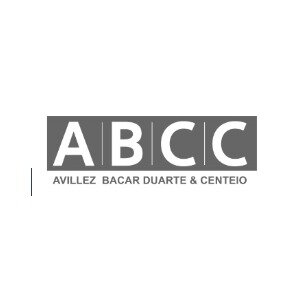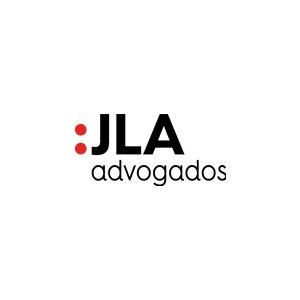Best Housing, Construction & Development Lawyers in Mozambique
Share your needs with us, get contacted by law firms.
Free. Takes 2 min.
Free Guide to Hiring a Real Estate Lawyer
Or refine your search by selecting a city:
List of the best lawyers in Mozambique
About Housing, Construction & Development Law in Mozambique
Housing, Construction & Development law in Mozambique is a critical area that governs the evolving landscape of urban and rural development across the country. As Mozambique continues to grow economically, the demand for legal frameworks that facilitate construction and development projects has increased. This field encompasses regulations on land acquisition, zoning, property rights, building codes, family and communal land tenure, as well as environmental considerations. Understanding these laws is vital for ensuring compliance and fostering sustainable development.
Why You May Need a Lawyer
There are several situations in which individuals or companies might require legal assistance in the domain of housing, construction, and development in Mozambique:
- Disputes over property boundaries and land ownership.
- Negotiating or drafting contracts for construction or property development projects.
- Resolving conflicts with contractors or subcontractors regarding construction timelines or quality.
- Understanding the implications of zoning laws and planning permissions for development projects.
- Navigating through the bureaucratic processes involved in obtaining necessary permits and licenses.
- Handling disputes related to communal property and customary land rights.
Local Laws Overview
Mozambique's legal framework for Housing, Construction, and Development is a tapestry of various laws aimed at regulating the real estate industry. Some of the key aspects include:
- The Land Law: Establishes the legal framework for land ownership and use, including land registration and certification.
- Urban Land Regulation: This governs the development and management of urban spaces, including zoning and planning restrictions.
- Building Code: Sets out the standards for construction projects to ensure safety, durability, and compliance with environmental and health requirements.
- Environmental Legislation: Regulates the impact of development projects on the environment, ensuring sustainable usage of natural resources.
- Real Estate Registration Code: Governs the procedures for registering and transferring property rights.
Frequently Asked Questions
What is the process for acquiring land in Mozambique?
The procedure involves obtaining a Land Use and Benefit Right (DUAT) from the government, which includes application and approval processes subjected to local consultations and Provincial Governor approval.
How can I resolve a boundary dispute with my neighbor?
This can usually be addressed through mediation or arbitration, and if unresolved, through legal proceedings in accordance with Mozambican law.
Who is responsible for obtaining building permits?
The developer or property owner is responsible for acquiring all necessary permits before beginning construction.
Are there special considerations for constructing in rural areas?
Yes, rural constructions must consider communal land rights and may require consultation with local communities and adherence to customary laws.
What rights do tenants have in Mozambique?
Tenants have rights such as protection against unlawful eviction, the right to a habitable living environment, and access to necessary services as stipulated in tenancy agreements.
How are land disputes typically resolved?
Land disputes may be resolved through traditional authorities, local courts, or formal judicial systems, depending on the nature and location of the dispute.
Can foreigners own land in Mozambique?
Foreigners cannot own land outright but can obtain long-term leases known as DUATs, often subject to investment and development commitments.
What environmental regulations affect construction projects?
Environmental licenses and assessments are required for projects that might significantly impact the environment, ensuring compliance with sustainability standards.
What are the penalties for building without proper permits?
Illegal construction can result in fines, suspension of work, or demolition orders, along with possibly bearing legal costs.
What steps should be taken if a construction project is behind schedule?
Negotiations between involved parties to adjust timelines, involving contractual revisions, or seeking mediation/legal advice may be necessary.
Additional Resources
Here are some resources that can provide further assistance:
- The Ministry of Public Works, Housing, and Water Resources: Offers insights and guidelines related to construction and housing policies.
- Confederation of Economic Associations of Mozambique (CTA): Provides support for businesses involved in real estate development.
- National Institute of Land and Cartography (INATUR): Assists with land registration and cartography services.
- UN-HABITAT Mozambique: Engages in advocacy and policy crafting to promote equitable housing development.
- Local legal firms specializing in real estate and construction law.
Next Steps
If you need legal assistance in Housing, Construction & Development, consider the following steps:
- Identify your specific legal needs and issues related to your situation.
- Conduct research or seek recommendations to find legal professionals with expertise in Mozambican housing and construction laws.
- Schedule consultations with potential lawyers to discuss your case and understand their approach.
- Ensure that any legal professional you hire is accredited by the relevant Mozambican Bar Association.
- Prepare all necessary documents and information to facilitate an effective legal consultation process.
Lawzana helps you find the best lawyers and law firms in Mozambique through a curated and pre-screened list of qualified legal professionals. Our platform offers rankings and detailed profiles of attorneys and law firms, allowing you to compare based on practice areas, including Housing, Construction & Development, experience, and client feedback.
Each profile includes a description of the firm's areas of practice, client reviews, team members and partners, year of establishment, spoken languages, office locations, contact information, social media presence, and any published articles or resources. Most firms on our platform speak English and are experienced in both local and international legal matters.
Get a quote from top-rated law firms in Mozambique — quickly, securely, and without unnecessary hassle.
Disclaimer:
The information provided on this page is for general informational purposes only and does not constitute legal advice. While we strive to ensure the accuracy and relevance of the content, legal information may change over time, and interpretations of the law can vary. You should always consult with a qualified legal professional for advice specific to your situation.
We disclaim all liability for actions taken or not taken based on the content of this page. If you believe any information is incorrect or outdated, please contact us, and we will review and update it where appropriate.
Browse housing, construction & development law firms by city in Mozambique
Refine your search by selecting a city.














